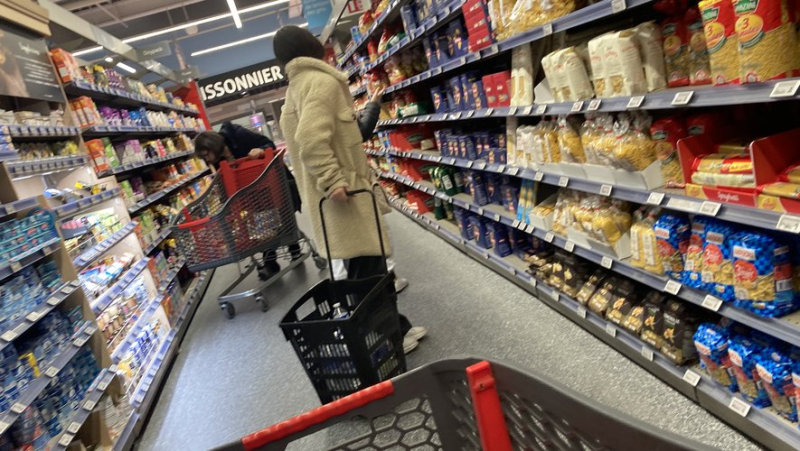Inflation: prices increased less in 2023, but they have not finished hitting the French hard in the wallet

La facture de l’alimentation augmente toujours. Illustration archive Midi Libre – ALEXIS BETHUNE
La tendance devrait se poursuivre cette année, selon les prévisions de l’Insee.
Prices are not falling, but they are increasing less. Inflation slowed to 4.9% in 2023 (it was 5.2% in 2022), according to the latest data from the National Institute of Economic Statistics (Insee), unveiled on Friday.< /p>
After a peak of 6.3% over one year in February 2023, recalls Le Monde, a level not seen in France for four decades, under the effect of the war in Ukraine and the difficulties of ;rsquo;post-Covid-19 supply, prices are still rising inexorably. But now in a less violent way.
Energy: the fever outbreak has subsided
Prices remain high, but the fever has subsided in the energy sector: the increase in prices has been divided by four in one year (it went from + 23.1 % to + 5.6 %), in particular thanks to the fall in the prices of petroleum products (- 1.7%), a slowdown on the gas side (from + 40.9% to + 14.3%), while the bill for ;electricity increased further (from + 7.4 % to +12.9 %).
A slowdown is also observed in food (+7.2% after 7.7% in November and almost 16% in spring). "The increase in prices over one year for food excluding fresh products is attenuating (+ 6.9%, after +7.9%)", notes l" ;rsquo;Insee.
Food: how prices have changed over the past year
But, even if it is less strong, the increase continues for bread and cereals (+ 7.5%), meat (+ 4.6%), milk, cheese and eggs (+ 8.4 %), oils and fats (+ 4.1 %), sugar, jam, honey, chocolate and confectionery (+ 10.5 %) and alcoholic beverages (+ 5.5 %) and non-alcoholic (+ 7.9%).
The increase in prices was even accentuated for fresh products (+ 8.8% after + 6.6%), "in particular those of fresh fruits (+ 7.6% after + 5.2% and fresh vegetables (+ 13.5% after + 8.4%), while those of fresh fish fell slightly over one year (‑0.6% after + 3 .1 %)", observes INSEE.
Increases that still hit consumers hard in the wallet at each checkout. But it was a surge in the prices of energy and services which gave a little more vigor to inflation in December (+ 3.7%, compared to + 3.5% in November ).
What perspectives now ?
Barring further international upheaval, the slowdown in inflation should nevertheless continue in 2024, according to forecasts from the institute.
L’Insee even forecasts inflation at 2.6% over one year in June, "under the hypothesis of a barrel price of Brent frozen on the forecast period at 75 €".
The inflationary crisis is "behind us", affirmed the Minister of the Economy and Finance Bruno Le Maire last month. But consumers should not expect, however, to find pre-crisis prices, he warned.
The electricity bill could rise further
They remain high, particularly in food, which accentuates the feelings of the French. Their electricity bill could, moreover, rise by another 10%, despite the improvement in the market, the government having decided to increase taxation to make up part of the deficit.
Another downside is that not everyone is impacted in the same way by these price increases. In 2023, inflation will hit the oldest and poorest households hardest.




